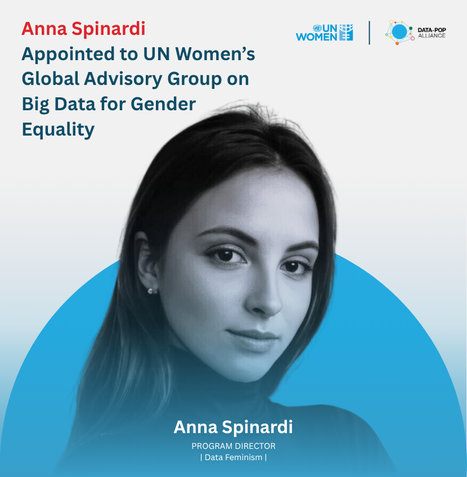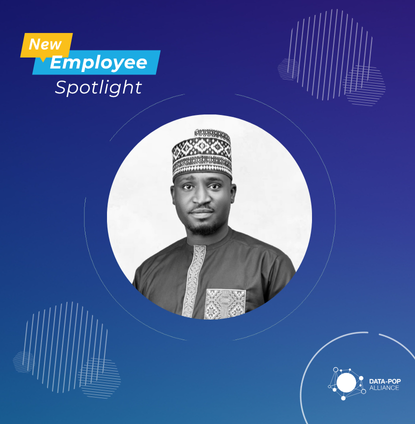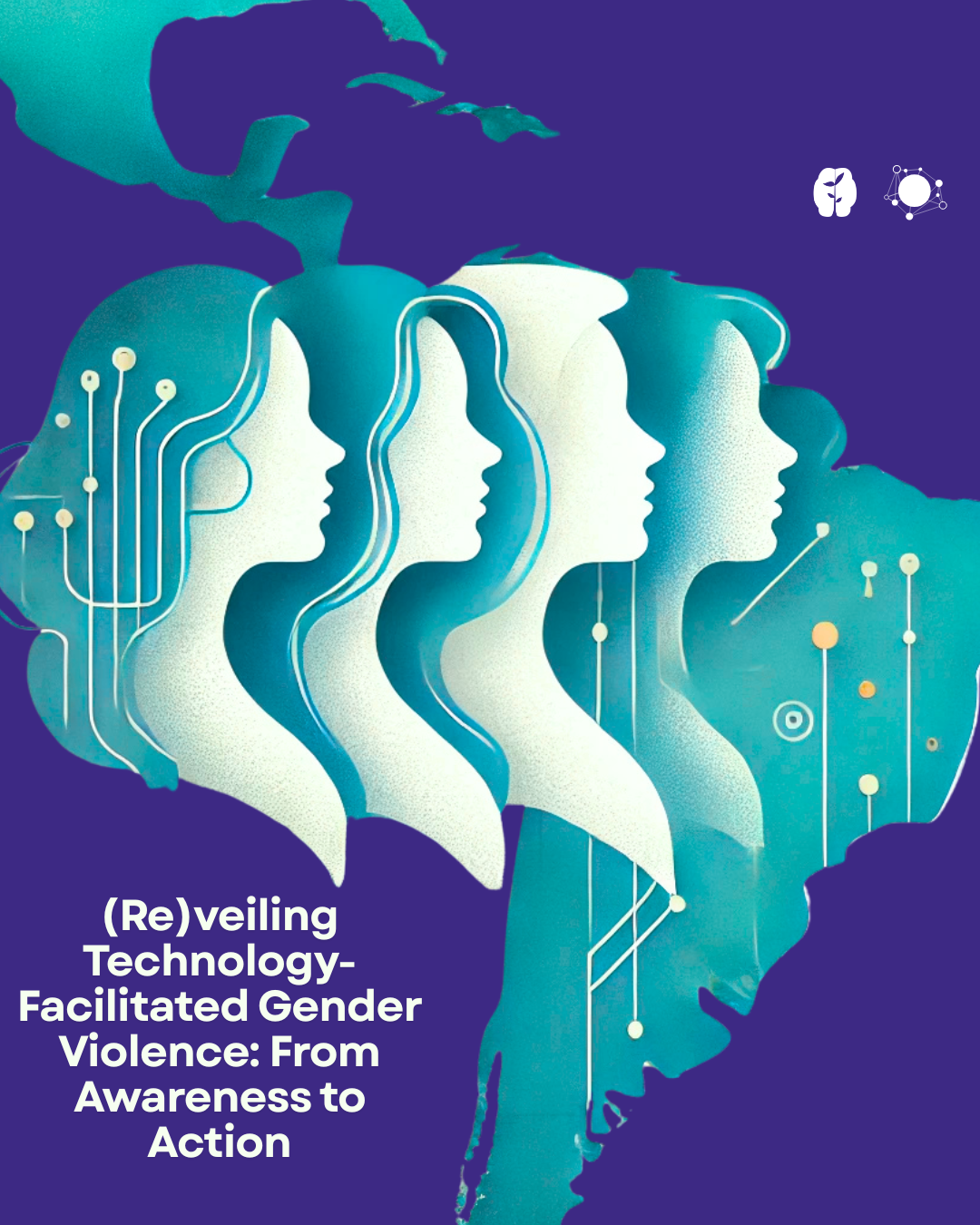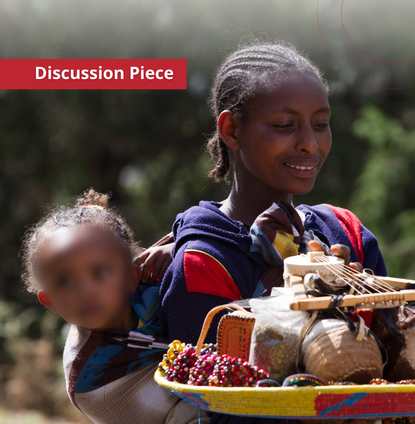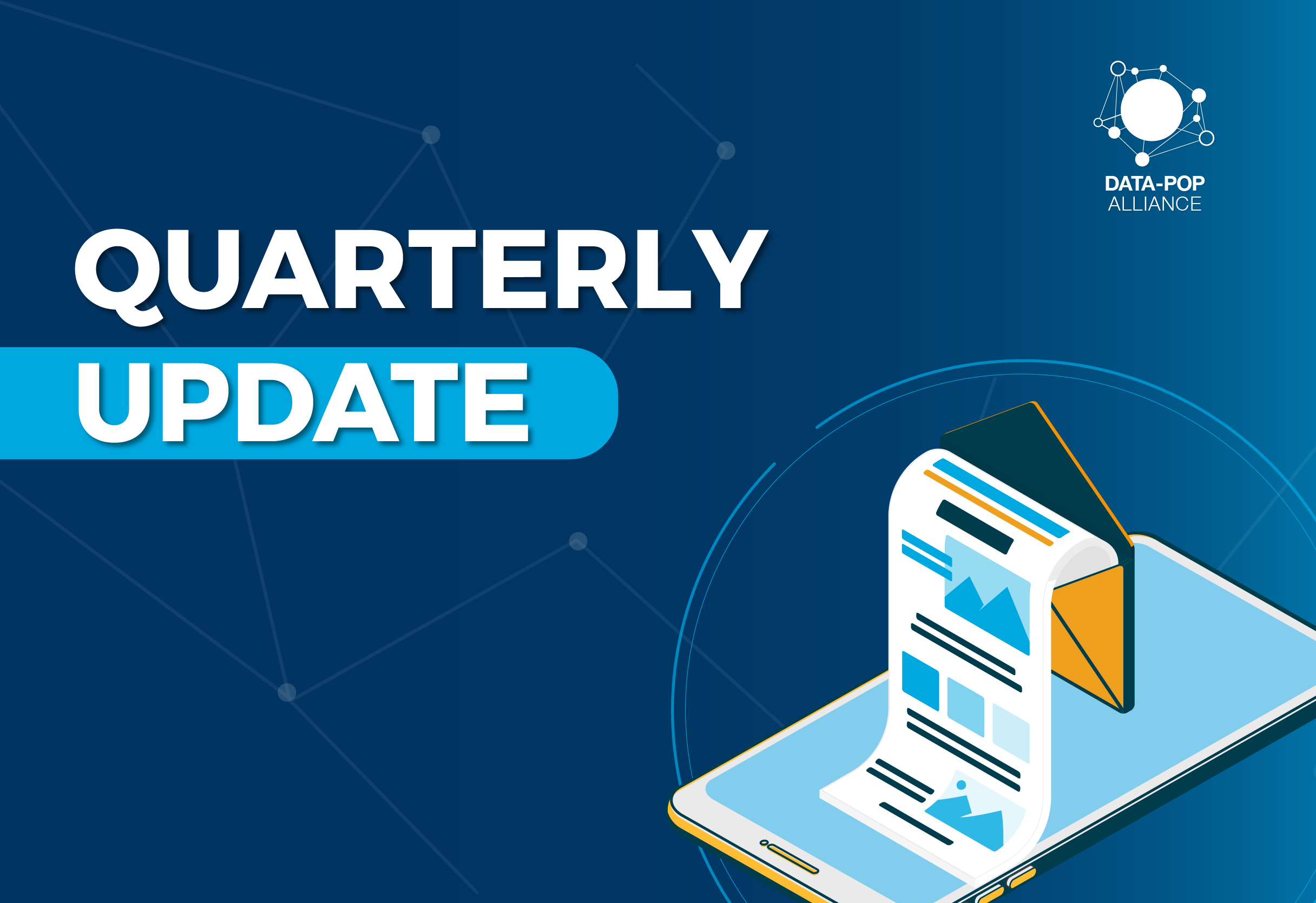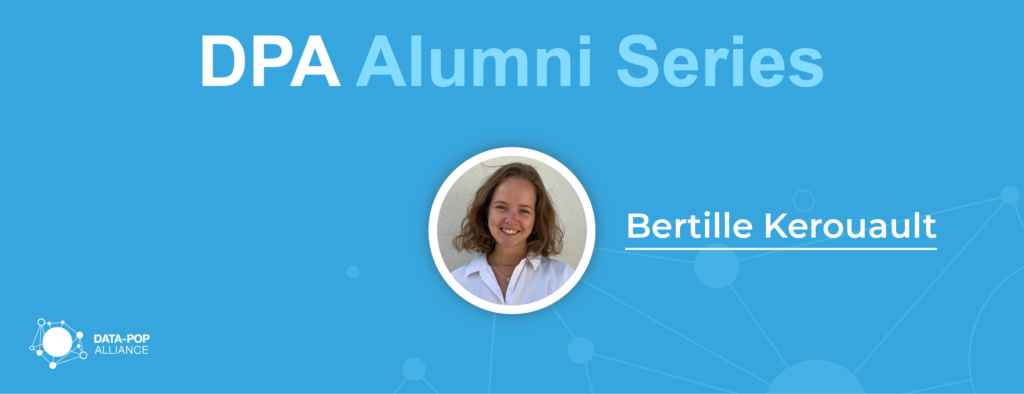
In the “Alumni Series”, we catch up with former Data-Pop Alliance interns to hear about their experiences working with DPA, what they learned, and how it helped them on their career paths. The second edition features Communications Officer Anthony Deen (AD) interviewing former Intern Bertille Kerouault (BK), who worked with DPA in 2021 for six months. She’s originally from France, and is currently studying Economics and International Finance at Sciences Po in Paris.
AD: Hi! Can you just let me know what you are doing now, having finished your internship?
BK: I’m in Buenos Aires (Argentina) at the moment, studying and having fun as well, doing my exchange semester. I arrived in February (2021) and I’m here until the end of July.
AD: Great, so to begin can you tell me how you chose this internship opportunity, how did you find it and decide it was something you wanted to apply for?
BK: I was required to do an internship in the framework of my studies, and I wanted to work with an international organization, whether it be an NGO, think-tank or something along those lines. So that was my first criteria. A friend of mine told me about Data-Pop Alliance, as she knew Emmanuel Letouzé [DPA Director], and I checked the organization out online. After seeing what they do, and as development is linked to my studies, I decided to apply.
AD: So let’s talk about the internship, how would you describe your experience, in terms of working remotely, the type of work you did, and how you feel now after having finished?
BK: Well, first I should say it was my first long-term internship and my first time entering the “professional” world, and ‘spoiler alert’, I was very happy that it was with DPA. Regarding skills, as the work is mainly on computers, I was exposed to new types of software. Additionally, communicating and working with people from around the world and writing (in English) were important areas where I gained experience. Also, there were specific skills I learned related to the type of work DPA does, for example working in West Sahel or the inner workings of UN agencies, which was all valuable for me.
In terms of working remotely, it was a bit frustrating for me at first, because I had already been studying online for over a year, so I was hoping to be able to be around other people. However, the fact that DPA does daily calls made it so that we developed a friend-type relationship, even though we never met in person. I was also worried about the time difference with Andres [Lozano, Program Manager], but because communication is at the heart of DPA, it actually wound up working very well.
Finally, I was able to adapt to the demanding work environment, as I received a lot of great feedback letting me know I was doing a good job, which motivated and reassured me.
AD: Can you elaborate on how you felt about the support you received from management, including upper management?
BK: In terms of understanding the inner workings of DPA, such as the identity and the culture, I felt very supported because Natalie [Grover, Managing Director] familiarized me with all of that in the beginning. Regarding the projects I worked on, I quickly realized that people had large workloads, and couldn’t walk me through exactly what I needed to do. At first it was a bit difficult, but eventually I came to enjoy the independence and I was also given a manageable workload, so that I could do quality work within the timeframes (deadlines). Additionally, I had the chance to talk with Emmanuel about my professional ambitions and he let me know he would be available even after the internship ended if I needed advice.
AD: What about the expectations you had for the internship, did you feel that they were met or did anything surprise you?
BK: To be honest, I didn’t have many expectations, as it was my first professional experience, but I did have more responsibilities than I would have thought an intern might have. This developed as the team gained more trust in my work. During an initial presentation with management, they talked about a “horizontal hierarchy”, which I wasn’t sure about, as of course interns have less responsibilities than managers. But as time went on, I felt that it was actually true, and that an intern has similar importance within DPA as anyone else. This actually really motivated me to do my best and continue to gain trust, as I felt that my work was valued.
I was also happy that DPA helped prepare me for the future with tangible projects that had my name on them, such as my discussion piece and a contribution for one of the Links We Like editions.
"As time went on, I felt that it was actually true, and that an intern has similar importance within DPA as anyone else. This actually really motivated me to do my best and continue to gain trust, as I felt that my work was valued."
Bertille Kerouault- Developer
AD: Yes, I felt the same way, starting as an intern. I was surprised that (after an initial “trust-gaining” period) I was given real responsibilities, and I think that is unique in an internship.
BK: Yes, and it’s something you earn. You don’t receive that trust right at the beginning, which motivates you to do your best and then you are rewarded with it.
AD: We talked about the skills you gained, are you finding them useful as you move forward with your studies and look towards your future career?
BK: Yes, all those skills have been very useful. For example, report writing, which is something I did often with DPA, has been very useful as I continue my studies. This includes structure, literature reviews, bibliographies, and what makes a report “good”. Also, the fact that I worked (for the first time) for 6 months with people who were older than me, and who come from different backgrounds and cultures was very interesting. It’s funny, because as I became more specialized with the topics I was working on, sometimes these older people (with more advanced degrees) would even come to me for advice. This is all part of the open and friendly environment that I found within DPA. It was great to be able to exchange all the knowledge and skills that we bring to the organization.
AD: It sounds like you had a really positive experience, but is there anything that you felt could have been improved?
BK: Something that may not be feasible is that, for me, I would have liked to work together in person. This also had to do with where I was living at the time (in Barcelona) and didn’t have the best apartment.
AD: My last question is if, having worked within a development organization, are you interested in continuing in this field after graduation?
BK: I am currently studying at Sciences Po in Paris, and I want to specialize in economics and international finance, with the goal of learning more about innovative financial tools to promote economic growth. DPA helped confirm that this is what I’d like to do, even though the main focus of their work is not directly on economic development. So while I learned more about governance and other aspects of human development, I do think that I want my main focus to be on the economic aspect.
"This is all part of the open and friendly environment that I found within DPA. It was great to be able to exchange all the knowledge and skills that we bring to the organization."
Bertille Kerouault- Developer
Check out of first edition of the “Alumni Series” featuring an interview with Shivika Singh.



